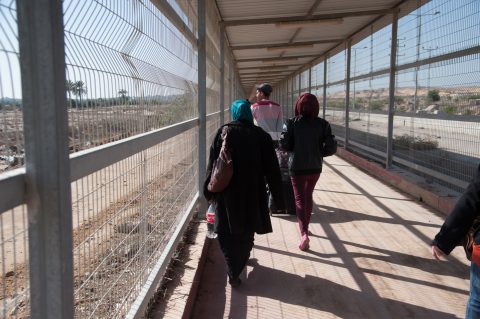Very few moral anchors remain in place amid moments of collective trauma, particularly when voices of incitement and vengeance are echoed in government. Now, a directive by the Israeli Health Minister that has found resonance and support among hospital administrations threatens to destroy the medical community’s moral and ethical backbone.
The health ministry declared last week that detainees from the heinous October 7 attack would not be treated in Israeli hospitals and would instead be sent to military and prison facilities – without him accounting for the availability of care there.
This directive was embraced by various hospitals, including Hadassah Medical Center, which refused to treat Gazan detainees brought by Israeli security forces, and by Sheba Medical Center. According to one report, “most hospitals stressed that they do not intend to admit or provide any form of medical care to terrorists.”
Still, some medical teams are facing these moral and ethical challenges with bravery and integrity, and they must be offered support amid calls to boycott them. The Israeli Medical Association and hospital staffs recently released such statements of resounding support.
The profound horror universally experienced in the face of such devastating harm to civilians, including children and women, must be separated from the professional mission of medical and health workers. Decisions on patient care at hospitals and other medical facilities should be based solely on medical considerations and treatment availability.
This does not diminish in the least the emotional challenges facing medical professionals. Yet, we expect the medical community’s leadership, and certainly the Ministry of Health, to apply measures that can respect these valid feelings while still upholding the commitment to medical professionalism. But rather than focusing solely on the medical task at hand and taking steps to separate civilian and detained patients given the obvious sensitivities – for example, in a designated unit in one of the hospitals – the medical officials appointed themselves as both arbiters and executors of a decision to withhold appropriate medical care. Such conduct violates the fundamental values and ethics of the medical and health professions.
Medical ethics are not an optional add-on for routine days or principles that can be disregarded when faced with patients who have committed terrible atrocities. It is important to remember that the laws of medical ethics and many international human rights treaties were drafted in the wake of World War II, during which unspeakable atrocities were carried out. Such laws were designed to protect health systems and medical professionals and allow them to carry out their duty to preserve and save lives.
Israeli society will need to recover from this horrific trauma, and the medical ethics should be a moral anchor in this process. Abandoning it would mean the abandonment of any hope for recovery.
As medical and health professionals, we call on the Ministry of Health and health institutions to adhere to the principles of medical ethics and professionalism and to provide equal treatment to every patient.
The members of Physicians for Human Rights-Israel’s Ethics Committee: Dr. Zohar Lederman, Prof. Nadav Davidovitch, Dr. Nurit Wagner, Naomi Ben-Yaakov, Dr. Zvi Benninga, Prof. Ruth Stalnikovich, Dr. Galit Artom, Dr. Bettina Birmanns.












